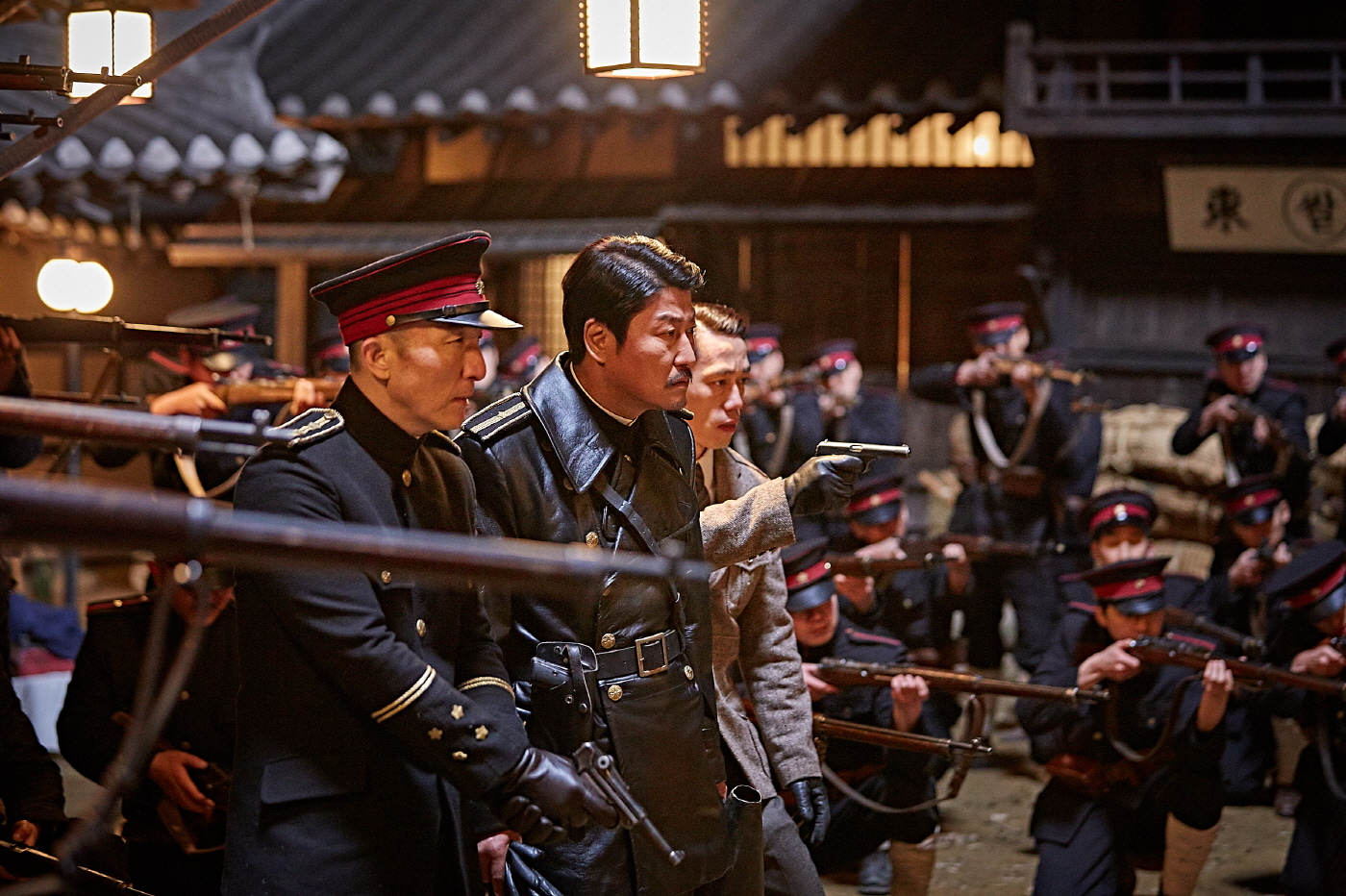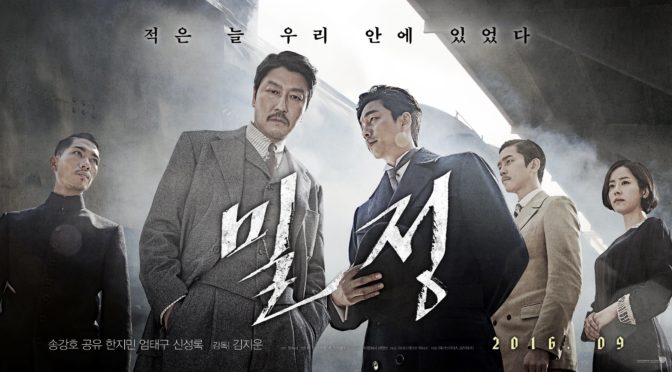In the first outing since his Arnold Schwarzenegger starring Hollywood debut The Last Stand, Kim Jee-woon returns with a film set in the 1930s when Korea was under Japanese rule. The Age of Shadows features Song Kang-ho (Memories of Murder) as Lee Jeong-chool, a Korean working as a police captain for the Japanese police and tasked with capturing members of the independence movement. In order to succeed, he must infiltrate their group and gain the trust of the leaders. Along the way his allegiances are put into question, both by the rebels and by his Japanese superiors.
The film’s storyline is overly complex. It’s 139 minute runtime is bloated with several back and forths between the rebels and the Japanese police trying to delineate each group’s hierarchy. Unfortunately these scenes are edited like action movies. The rapid intercutting is clearly intended to prevent them from becoming stale but instead limits comprehension and becomes frustrating. Why spend so many minutes on these details only to undermine their impact with the rapid pacing? It’s possible that the film is intended for Korean audiences that may be more familiar with the historical background and may not need the setup explained, but even so, by not letting these scenes breathe, the bulk of the film’s runtime is wasted.

Even with the amount of time devoted to exposition, the film doesn’t develop its characters. The rebels are shown planning their next actions but aren’t given any backstory. They are just assumed to be the protagonists without any time spent convincing us they are worth rooting for. It’s obvious that no country would want to be run by another, but the Japanese characters aren’t proven to be villains. Again, the film may be assuming that Korean audiences will automatically sympathize with the Korean characters, but from an outsider’s perspective there aren’t many reasons to pick a side. Furthermore, certain characters are claimed to be invaluable within the rebel network, but we’re never shown why. As rebel leaders are placed in peril we’re supposed to care, but how can we without understanding why they are important? Only Lee’s character has some growth. His internal struggle with working for the Japanese while being a Korean is understandable, but his path to his current situation isn’t explained. What are his motivations? Was this an easy change decision for him? Without these answers, we are left detached from the main characters and their central conflicts.
Kim is known for his frantic, bloody action scenes but there are too few present here. The film opens with a chase scene that is frenetic occasionally humorous, and features some of the gore he is known for but quickly gives way to exposition heavy beginning. Save for a well staged later set piece on a train, there are no more extended action scenes. Even the violence seems limited compared to most of his work. Neglecting these sequences in favor of labyrinthine plotting was a major mistake. Kim’s greatest strength is his ability to create bloody but playful combat. His direction remains agreeably slick, but the plodding storyline and lack of action make the film feel uninvolving and overlong.

3/5 stars.
